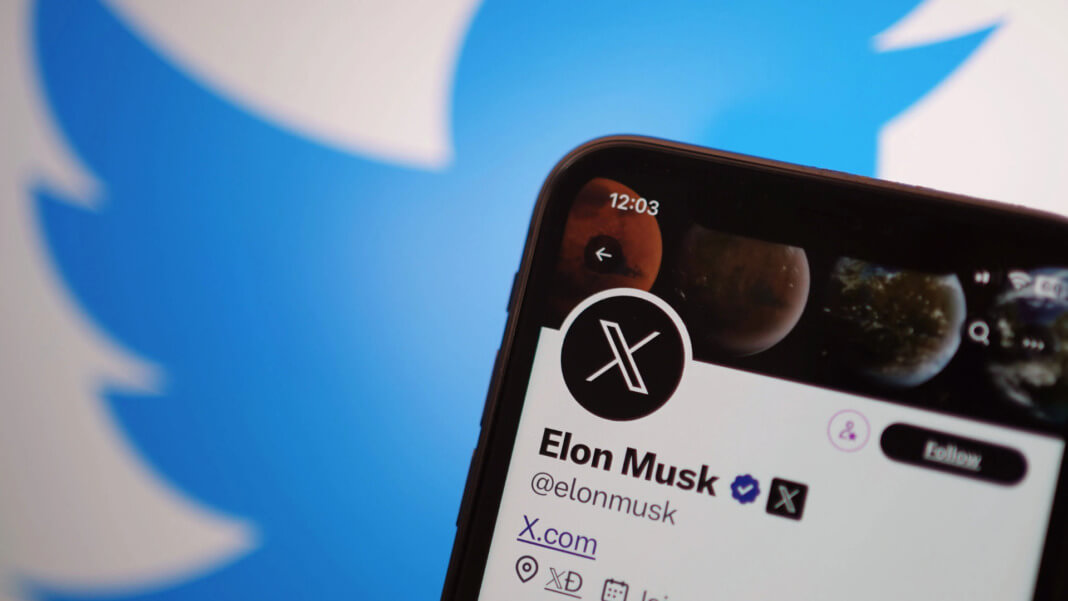As the digital space evolves, so does the landscape of social media platforms. The most recent significant metamorphosis in this sector is the transformation of the renowned Twitter into X under the leadership of Elon Musk. With this change comes many updates, the most eye-catching being the amendments to the privacy policy.
X’s decision to gather biometric data is one of these significant shifts. This category of data encompasses various facets of a person’s physical or behavioural attributes, such as facial scanning technology. With the incoming changes set for 29 September, X avows its intent to harness this biometric information for enhanced safety and identification measures. However, they have emphasised that these practices will be rooted in user consent, hinting at an opt-out option.
User identity and platform security
As with any change, there are queries and concerns. While the platform’s policy doesn’t define ‘biometric information’, clarity has been shed through a statement to the BBC. X plans to allow users to submit their government-issued ID and a selfie, adding a more robust verification process. The collected biometric data from these sources will primarily combat impersonation and bolster the platform’s security.
This move is also a step towards facilitating passwordless sign-ins. With X potentially supporting passkeys, users might soon use their device’s built-in security features like fingerprint scanning or facial recognition to access their accounts.
An “everything app” in the making?
The concept of an “everything app” isn’t new but undeniably revolutionary. We’ve seen the rise of platforms like China’s WeChat, which seamlessly blend social media, e-commerce, payment gateways, and many other services into a singular, unified experience. With Elon Musk at the helm of X, similar aspirations are on the horizon.
Beyond the realm of biometric data and security enhancements, X’s ambitious moves into the world of personal information signal a larger vision. The intent to use data such as employment histories and preferences suggests that X aims to be more than just a social media platform. It aspires to be an integral part of its users’ daily lives, aiding in communication and professional growth and opportunities.
The acquisition of Laskie, a tech recruitment service, by X Corp offers a glimpse into this expanded vision. Such a move isn’t just about diversifying the platform’s offerings but creating a holistic ecosystem where users can transition smoothly from one activity to another, whether tweeting, job hunting, or purchasing.

Taking a page out of WeChat’s playbook, integrating recruitment services into X is strategic and timely. The job market is increasingly digital, and platforms offering streamlined, efficient recruitment solutions have a distinct advantage. By blending social interactions with professional opportunities, X is positioning itself at the crossroads of personal and professional, a space few platforms have ventured into with success.
Musk’s aspiration to mould X into an “everything app” might seem audacious, but given his track record with ventures like Tesla and SpaceX, it’s a vision that can’t be dismissed lightly. If X can successfully integrate a range of services while ensuring user trust and data security, it is on its way to redefining social media’s future.
Navigating the complex waters of political ads
X’s rebranding is more than just centred around data collection. The platform has reintroduced political advertisements, a sharp turn from Twitter’s decision to ban them in 2019 due to concerns about misinformation. Under Musk’s direction, the platform aims to reinforce its commitment to free expression while recovering from a financial slump that saw ad revenues halve. The revenue drop, exacerbated by problematic ventures like Twitter Blue, has necessitated a relook at their policies.
To ensure transparency, X is in the works to launch a global advertising transparency centre, where users can scrutinise political ads on the platform. They pledge to apply strict guidelines for these promoted posts, particularly in the U.S., emphasising preventing misleading content, especially those that could dent public faith in electoral processes.
Looking ahead: A more secure, transparent X?
The digital age has ushered in unparalleled connectivity, but with it comes the daunting challenge of balancing freedom of expression with the safety and security of users. X, following in the footsteps of its predecessor, Twitter, grapples with this delicate equilibrium as it charts a course forward.
The renewed emphasis on biometric data and privacy measures illustrates X’s commitment to heightened security. By allowing users to link their accounts with government IDs and selfies, X hopes to curtail impersonation attempts and forge a safer platform. Such a strategy is about more than just protecting individual accounts and fortifying the platform’s integrity. After all, in the age of misinformation, the integrity of information hinges heavily on the authenticity of its source.
But beyond security, transparency is another pillar in X’s blueprint for the future. For example, the decision to reintroduce political advertisements is a nod to freedom of expression. However, X has proposed a global advertising transparency centre to alleviate concerns. Such a feature, allowing users to discern the promoted political ads, is a testament to the platform’s intent to offer visibility and clarity in its operations.
Amidst these shifts, revenue challenges and brand transformation loom large. The advent of Twitter Blue, while initially seen as a revenue booster, was met with mixed reviews and challenges, underscoring the unpredictable nature of platform evolution. However, adversity often breeds innovation, and X’s response to these hurdles will be a litmus test of its resilience and adaptability.
The overarching narrative for X is straightforward: a platform that values its users’ rights to speak freely but within the bounds of security and truth. The road ahead is fraught with challenges, from combating misinformation to regaining advertiser confidence and reshaping its brand identity in a saturated market. Yet, with a clear vision and steadfast determination, X stands poised to carve out its niche in the intricate mix of social media. Only time, as they say, will reveal the efficacy of these strategies and the legacy that X intends to leave behind.





